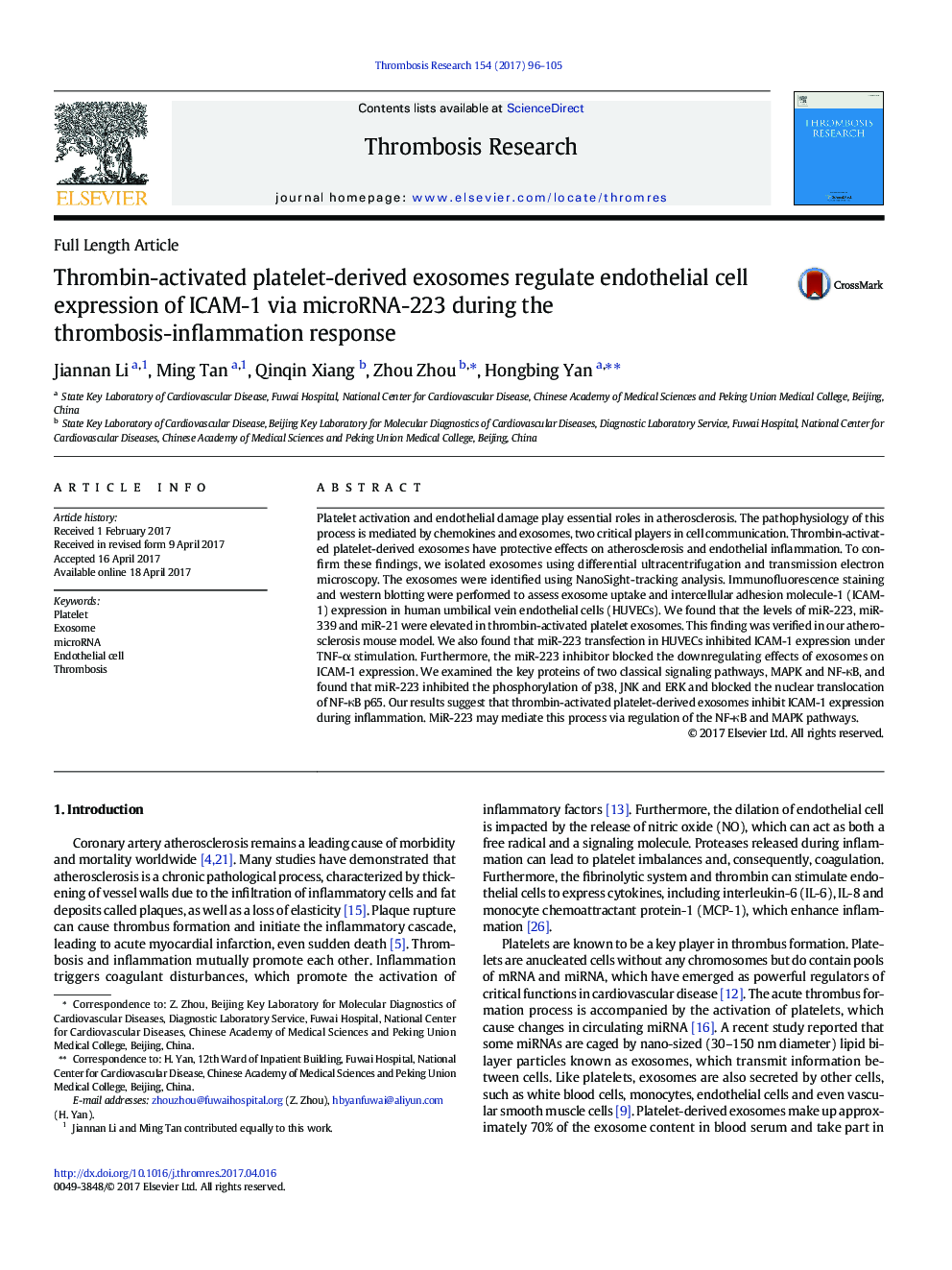| Article ID | Journal | Published Year | Pages | File Type |
|---|---|---|---|---|
| 5621992 | Thrombosis Research | 2017 | 10 Pages |
Abstract
Platelet activation and endothelial damage play essential roles in atherosclerosis. The pathophysiology of this process is mediated by chemokines and exosomes, two critical players in cell communication. Thrombin-activated platelet-derived exosomes have protective effects on atherosclerosis and endothelial inflammation. To confirm these findings, we isolated exosomes using differential ultracentrifugation and transmission electron microscopy. The exosomes were identified using NanoSight-tracking analysis. Immunofluorescence staining and western blotting were performed to assess exosome uptake and intercellular adhesion molecule-1 (ICAM-1) expression in human umbilical vein endothelial cells (HUVECs). We found that the levels of miR-223, miR-339 and miR-21 were elevated in thrombin-activated platelet exosomes. This finding was verified in our atherosclerosis mouse model. We also found that miR-223 transfection in HUVECs inhibited ICAM-1 expression under TNF-α stimulation. Furthermore, the miR-223 inhibitor blocked the downregulating effects of exosomes on ICAM-1 expression. We examined the key proteins of two classical signaling pathways, MAPK and NF-κB, and found that miR-223 inhibited the phosphorylation of p38, JNK and ERK and blocked the nuclear translocation of NF-κB p65. Our results suggest that thrombin-activated platelet-derived exosomes inhibit ICAM-1 expression during inflammation. MiR-223 may mediate this process via regulation of the NF-κB and MAPK pathways.
Related Topics
Health Sciences
Medicine and Dentistry
Cardiology and Cardiovascular Medicine
Authors
Jiannan Li, Ming Tan, Qinqin Xiang, Zhou Zhou, Hongbing Yan,
